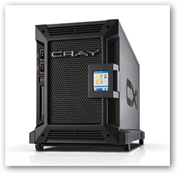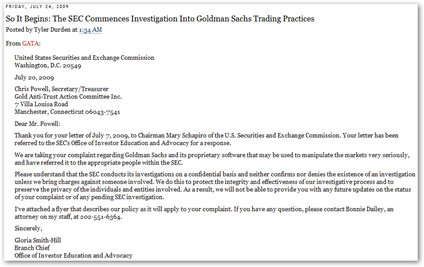Back when the stock market crashed, everyone thought it was odd that a few days afterwards that Microsoft and others were pushing high powered servers, and at the time I knew exactly why as they needed speed for the rebuild. Those algorithms were needed to run faster than ever to make the  money back the banks had received and pay back the government. Morgan Stanley was one of those who was all over it. Again, this may sound out of sorts for non geeks, but to the finance folks it made perfect sense for planning for the next moves with financial business intelligence.
money back the banks had received and pay back the government. Morgan Stanley was one of those who was all over it. Again, this may sound out of sorts for non geeks, but to the finance folks it made perfect sense for planning for the next moves with financial business intelligence.
Download Windows HPC server 2008 I added this post on September 23rd last year myself here at the blog.
Anyone who hangs around here long enough knows what an algorithm is by now, that is one of my small goals in writing here, to educate at least to the minimum of what it is and what algorithms do, as health insurance is another industry that uses business intelligence algorithms maximized for financial gain. If you don’t believe companies like UnitedHealthCare have invested heavily, then read this blog more often and get educated on what’s happening. The author of this article in the New York Times did an exceptional job in bringing this to light and I’m attempting here to expand a bit further on how it impacts healthcare. The link below may add some useful input.
Goldman Sachs – Healthcare Reform Bets, Hedges, and Analysis, Not About Healthcare But All About Money
Also in the news recently too is the story below, did someone steal the algorithms used by Goldman, which they admit to using along with high powered processors to deliver the information in less than a second.
Somebody Stole Goldman’s Algorithms – Code that Makes Their Money Just Like Health Insurers Use
As related below with Wall Street, Health Insurers can also spot trends before others can begin to blink too, much less try and mess around with a spreadsheet. If others do not have the speed and capability to keep up, this is where they lose out, just like on Wall Street and it has been going on for years in healthcare insurance. The information is ran and calculated on multiple server cores without having to rewrite code.
One company who makes the super computers is Cray and it runs server software not a simple Windows operating system. Prices may have changed but originally last year a unit was about $25,000.00, sounds expensive, but how big is your hedge fund budget and what are your investments will answer that question as far as whether or not the investment appears to be worth an ROI, but Goldman seems to be doing very well with them and  they run Linux too and have Intel Xeon processors.
they run Linux too and have Intel Xeon processors.
From the website:
The Cray CX1™ deskside personal supercomputer is the "right size" in performance, functionality, and cost for individuals and departmental workgroups who want to harness HPC without the complexity of traditional clusters. The Cray CX1 system is also available in a “light configuration” version, the Cray CX1-LC™.
Equipped with powerful Intel Xeon processors and integrated with your choice of Windows HPC Server 2008, Linux-based Rocks+ (Intel Cluster Ready), or Platform OCS (Intel Cluster Ready), the Cray CX1 and Cray CX1-LC deliver the power of a high performance cluster with the ease-of-use and seamless integration of a workstation.
“But as new marketplaces have emerged, PCs have been unable to compete with Wall Street’s computers. Powerful algorithms — “algos,” in industry parlance — execute millions of orders a second and scan dozens of public and private marketplaces simultaneously. They can spot trends before other investors can blink, changing orders and strategies within milliseconds.”
If you have not read enough, here’ some additional input about Goldman and their propriety software and the full article can be read at Zero Hedge. It is a complaint to the SEC (if they know what these high powered computers are) to take action against their use to manipulate hedge funds and other financial areas for unlawful gain.
How Similar is Wall Street to the Health Insurance Business
Ok after all of this is said, do anyone think our government might have a couple of these around, somewhere where they count? I might guess not, but it’s like going into a battle with swords and your competition shows up with a machine gun, if you get my drift. If we were on top of things, would the MRI machines been infected with the Conficker virus?
Hospital MRI and Other Medical Devices Infected with Conficker Virus – FDA Required 90 Day Notice before Windows Update Patch Could be Applied
I posted this back on September 23rd, again going over the same issue with lack of technology from the other side. I’m sure a couple top members of the FBI could use one of the Cray computers too.
FBI Investigating Potential Financial Fraud – One Big Virus At Large
So once again we are back to technology with one side fighting with machine guns and the other side trying to duel with swords, catch up time is needed ASAP, whether we want to participate or not, there’s no longer a choice if we are to create and maintain balance when it comes to health insurance and investments. BD
It is the hot new thing on Wall Street, a way for a handful of traders to master the stock market, peek at investors’ orders and, critics say, even subtly manipulate share prices.
Powerful computers, some housed right next to the machines that drive marketplaces like the New York Stock Exchange, enable high-frequency traders to transmit millions of orders at lightning speed and, their detractors contend, reap billions at everyone else’s expense.
These systems are so fast they can outsmart or outrun other investors, humans and computers alike. And after growing in the shadows for years, they are generating lots of talk. Nearly everyone on Wall Street is wondering how hedge funds and large banks like Goldman Sachs are making so much money so soon after the financial system nearly collapsed. High-frequency trading is one answer.
And when a former Goldman Sachs programmer was accused this month of stealing secret computer codes — software that a federal prosecutor said could “manipulate markets in unfair ways” — it only added to the mystery. Goldman acknowledges that it profits from high-frequency trading, but disputes that it has an unfair advantage.
“This is where all the money is getting made,” said William H. Donaldson, former chairman and chief executive of the New York Stock Exchange and today an adviser to a big hedge fund. “If an individual investor doesn’t have the means to keep up, they’re at a huge disadvantage.” Loopholes in market rules give high-speed investors an early glance at how others are trading. And their computers can essentially bully slower investors into giving up profits — and then disappear before anyone even knows they were there.
“You want to encourage innovation, and you want to reward companies that have invested in technology and ideas that make the markets more efficient,” said Andrew M. Brooks, head of United States equity trading at T. Rowe Price, a mutual fund and investment company that often competes with and uses high-frequency techniques. “But we’re moving toward a two-tiered marketplace of the high-frequency arbitrage guys, and everyone else. People want to know they have a legitimate shot at getting a fair deal. Otherwise, the markets lose their integrity.”
Traders Profit With Computers Set at High Speed - NYTimes.com


